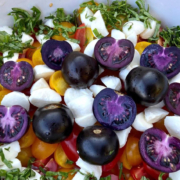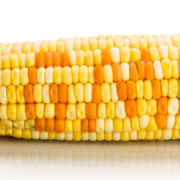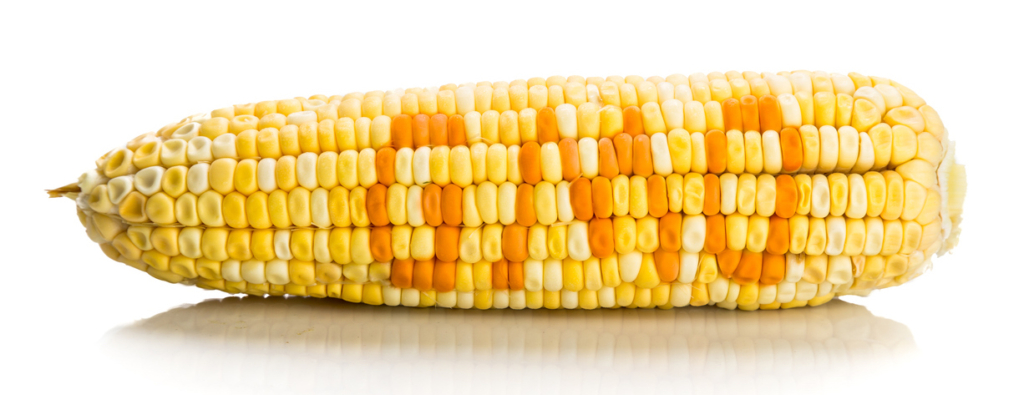Soil & Health submission on GE purple tomatoes in food
10 September 2025
To Food Standards Australia New Zealand

Submission to Food Standards Australia New Zealand
A1333 – Food derived from purple tomato lines containing event Del/Ros1-N
Preamble
The Soil & Health Association of New Zealand is an incorporated society founded in 1941. Its primary purpose is to promote and advocate the production and consumption of organic food. Our motto is ‘Healthy soil – healthy food – healthy people: Oranga nuku – oranga kai – oranga tāngata’.
We represent approximately 17,000 members and supporters around Aotearoa New Zealand, including consumers, home gardeners, farmers, horticulturists, business people, chefs and more.
Our members and supporters are health conscious and highly concerned about their food: how it’s produced, what’s in it, and what effects it has. They want food that is natural and unadulterated, free from harmful chemicals and toxins, and produced in ways that enhance our soils, environments, health and communities.
We represent people who have many reasons for wanting to avoid GE food – such as health, environmental, ethical, cultural, philosophical, climate change and more.
The Soil & Health Association (hereafter Soil & Health) welcomes the opportunity to submit on this application.
Submission
- Soil & Health categorically opposes the application for the Purple Tomato for the following reasons.
No justification
- Norfolk Healthy Produce’s justification for their application is that the genetically engineered Purple Tomato contains high levels of anthocyanins, which are beneficial compounds.
- However, simply containing high levels of anthocyanins is no justification for allowing this genetically engineered tomato into the food supply of New Zealand and Australia.
- This application is for an unnecessary food and is primarily for the purpose of patenting.
- There are already numerous plant foods that contain anthocyanins, such as blueberries, blackcurrants, blackberries, elderberries, cherries, purple grapes, eggplants, purple cabbage, purple cauliflower, purple carrots, blue corn, red onions, oranges, raspberries, red wine, pink grapefruit, red radishes, purple asparagus, black beans, red broad beans, and many more.
- There are already several heirloom varieties of tomato with blue and purple hues that contain anthocyanins.
- The applicant’s claim (as part of its justification for the application) that the Purple Tomato is visually striking and ‘delights consumers’ is subjective and a flimsy justification for the application.
Human health effects are unknown
- A pilot study on mice was conducted in 2008 and showed and found some benefits of consuming the Purple Tomato in terms of longer life span (Butelli et al, 2008 – referred to in the application).
- However this was a limited, small-scale study on just 20 mice, and further tests of a more extensive scope are required to provide evidence of beneficial and/or adverse health effects.
- The health effects (positive and negative) of humans consuming these tomatoes are unknown. To our knowledge there have been no trials involving humans.
- As the UK’s National Health Service said: ‘until the tomato is tested in humans we cannot be sure that it will offer the same benefits, or that there will not be any unexpected harms’.
Potential adverse health effects
- Soil & Health notes that while anthocyanins are generally beneficial for health, they are not essential nutrients.
- When anthocyanins are taken in pill form, safe levels may be exceeded, and they may have adverse health effects including the potential to limit iron absorption.
- The levels of anthocyanins in the Purple Tomato are much higher than occur in other foods and in supplement form, but there is limited research on the overconsumption of anthocyanins except when taken as supplements.
- Before approving the introduction of the Purple Tomato to our diet, independent research must first be undertaken into the health effects of consuming it, to investigate any potential adverse effects.
- We don’t know the safe upper limits of anthocyanin consumption. A Harvard University mini review states there is a ‘need for increased regulation and guidelines for polyphenol consumption and supplementation in order to ensure consumers remain safe and informed about polyphenols.’ (Anthocyanins are polyphenols.)
- One of the risks of genetically engineering foods is that allergens, toxins and novel proteins can be created.
- The applicant says the Purple Tomato does not contain anything matching or similar to any known allergens or toxins. However this does not rule out containing allergens or toxins yet unknown.
- Absence of evidence is not evidence of absence. If you’re not looking for something, you won’t find it.
Safety and equivalence
- The claim that foods produced using GE are equivalent to their non-GE counterparts cannot be made with any certainty – in fact significant differences have been discovered.
- Existing non-GE tomatoes have a history of safe use over hundreds and thousands of years. The Purple Tomato does not have a history of safe use.
- There is no long-term independent research on the Purple Tomato.
- The Purple Tomato contains genetic material from not only the purple snapdragon but also bacterial and viral material.
- We are increasingly discovering unexpected (‘off-target’) changes resulting from genetic engineering. For example, gene-edited cattle were found to have unintended alterations to the DNA, with bacterial DNA conferring antibiotic resistance, despite the developer having claimed the cattle contained no additional genetic material.
- If these tomatoes were released into the food supply, any adverse effects on humans would be unable to be measured or monitored.
- Therefore FSANZ must apply the precautionary principle and reject this application, to fulfill its regulatory function of upholding and safeguarding public health.
Māori concerns, and Te Tiriti o Waitangi
- Many Māori – including Māori members and supporters of Soil & Health – strongly object to any form of genetic engineering, as it disturbs whakapapa (kinship with the natural world), mana (dignity), mauri (life force or essence), wairua (spirit) and tino rangatiratanga (sovereignty).
- In Aotearoa New Zealand there is at least one claim before the Waitangi Tribunal that involves genetic engineering – Claim WAI262.
- Until or unless this is settled to the satisfaction of Māori, no genetically engineered organisms or foods should be approved in Aotearoa New Zealand.
Consumer rejection
- The applicant’s claim that consumers would seek out this novel food is speculative and no evidence is given to back it up.
- Many surveys in many countries have shown consumers to be wary about, if not opposed to, consuming genetically engineered foods.
- Soil & Health members and supporters have been giving us feedback that they would be horrified to see the Purple Tomato on sale in Aotearoa New Zealand, and would actively seek to avoid buying or consuming it.
- While it may not be too difficult for consumers to avoid buying the Purple Tomato as fresh produce, it may be harder to avoid it if it’s included as an ingredient.
- New Zealand’s GE labelling laws are already inadequate for consumers to make informed choices about avoiding GE food ingredients.
- For example, GE ingredients do not have to be labelled in restaurants and other food service outlets, so if the Purple Tomato is served fresh or as an ingredient in a processed product or meal it would not need to be labelled, making it harder for consumers to try to avoid.
Trade impacts
- The application says there would be no trade impacts to Australia, with no mention of New Zealand.
- While we are aware application A1333 is about food derived from the Purple Tomato, clearly those tomatoes have to be grown somewhere, and we note that an application has been filed with the Office of the Gene Technology Regulator to grow the Purple Tomato in Australia.
- The only country New Zealand currently imports fresh tomatoes from is Australia. Based on the many consumer surveys over the years, we anticipate low consumer demand in New Zealand for any Australian-grown Purple Tomatoes.
- New Zealand exports about 902 tonnes of tomatoes annually (2023 figures), mainly to Asia, the Pacific and Pacific Rim countries.
- If in future they are grown in Aotearoa New Zealand for export that could negatively affect our clean green export brand and image in international markets.
Summary
- In summary, Soil & Health strongly rejects the application.
- Accepting this application would mean exposing the public of New Zealand and Australia to potential risks that would not be able to be measured and monitored.
- We support FSANZ to take a precautionary approach to the Purple Tomato and indeed all GE foods, in order to uphold public health and safety.
- We urge FSANZ to reject this application as there is insufficient evidence of the safety of the Purple Tomato.




